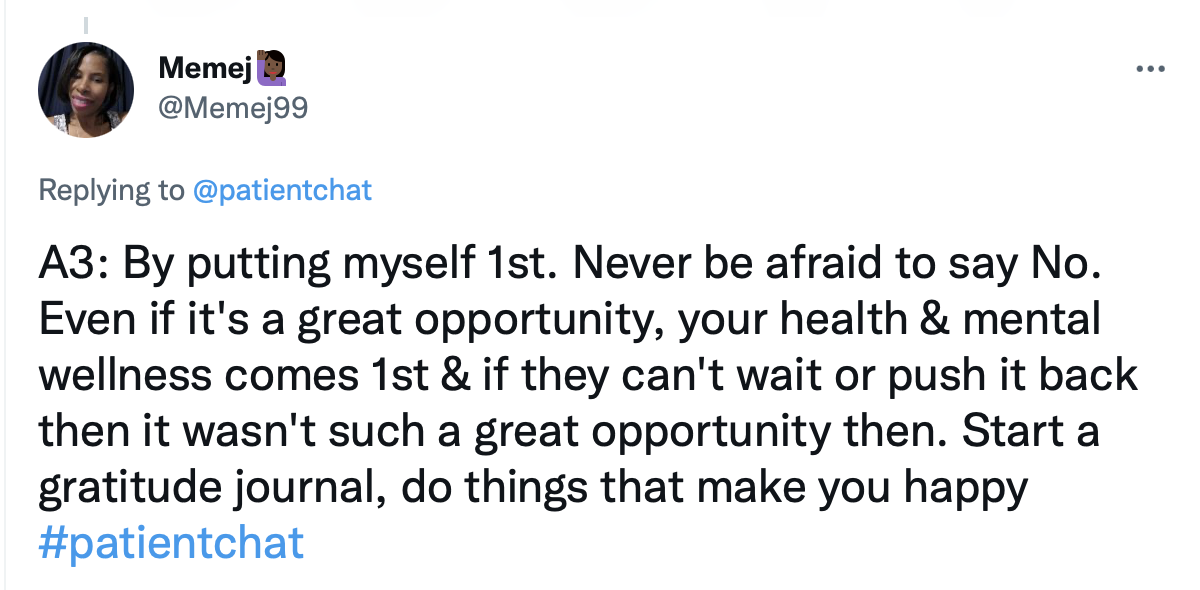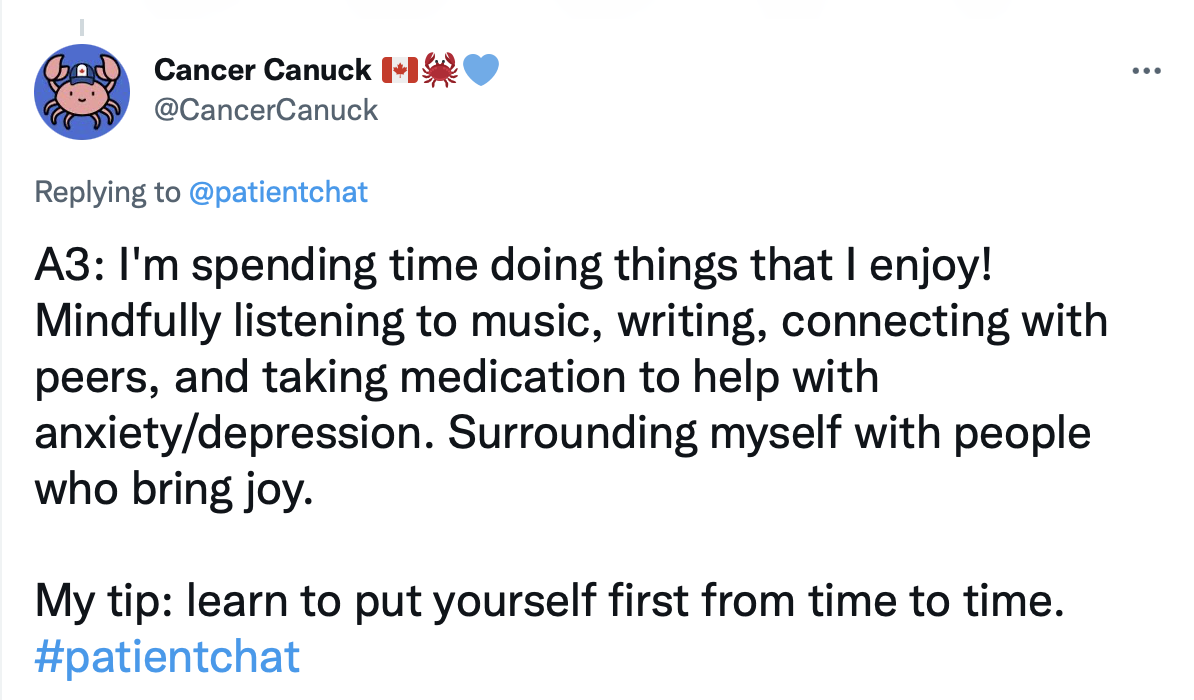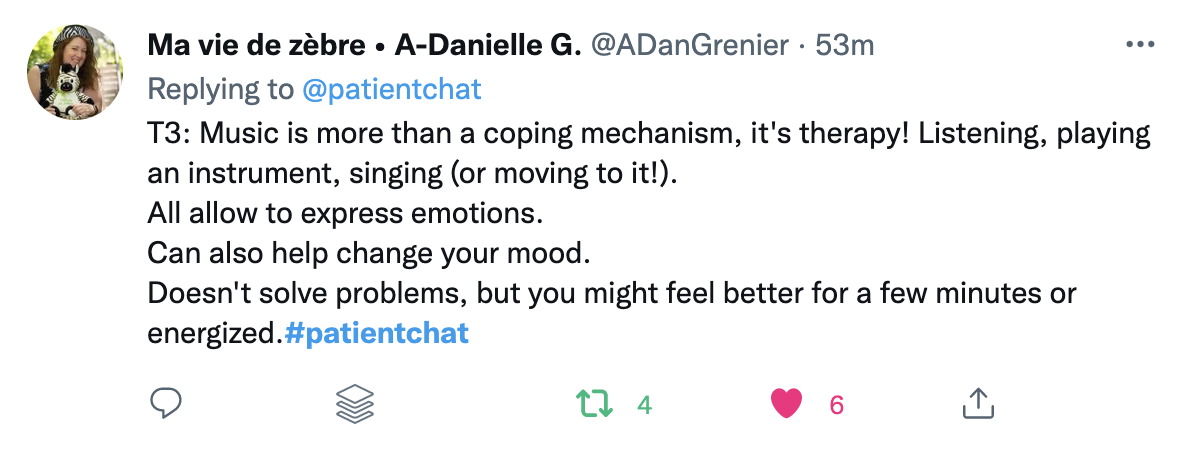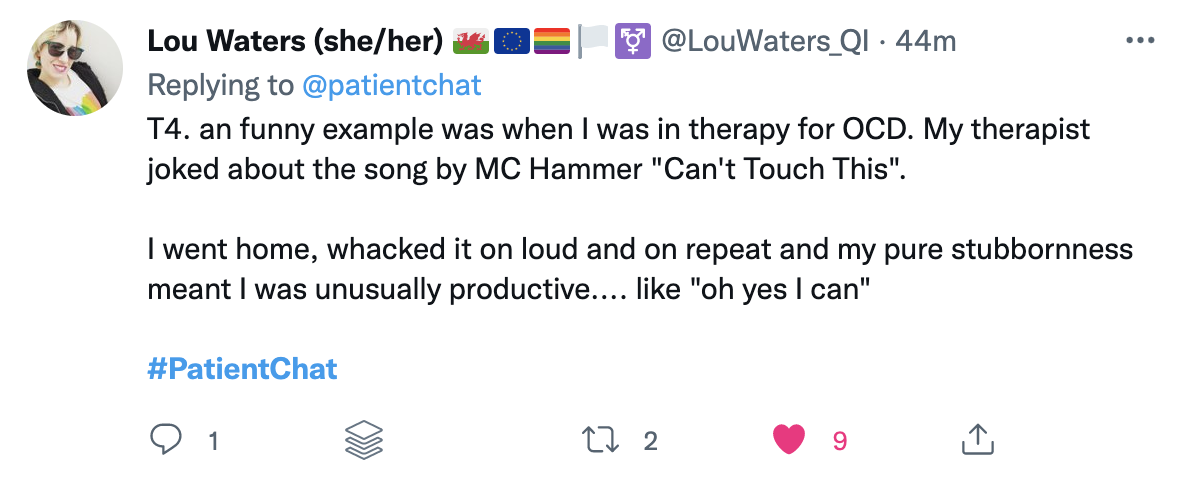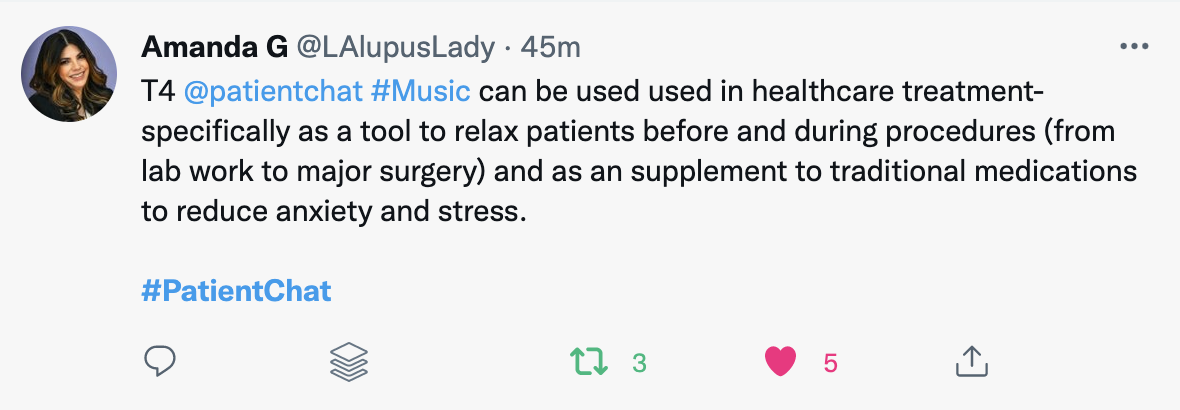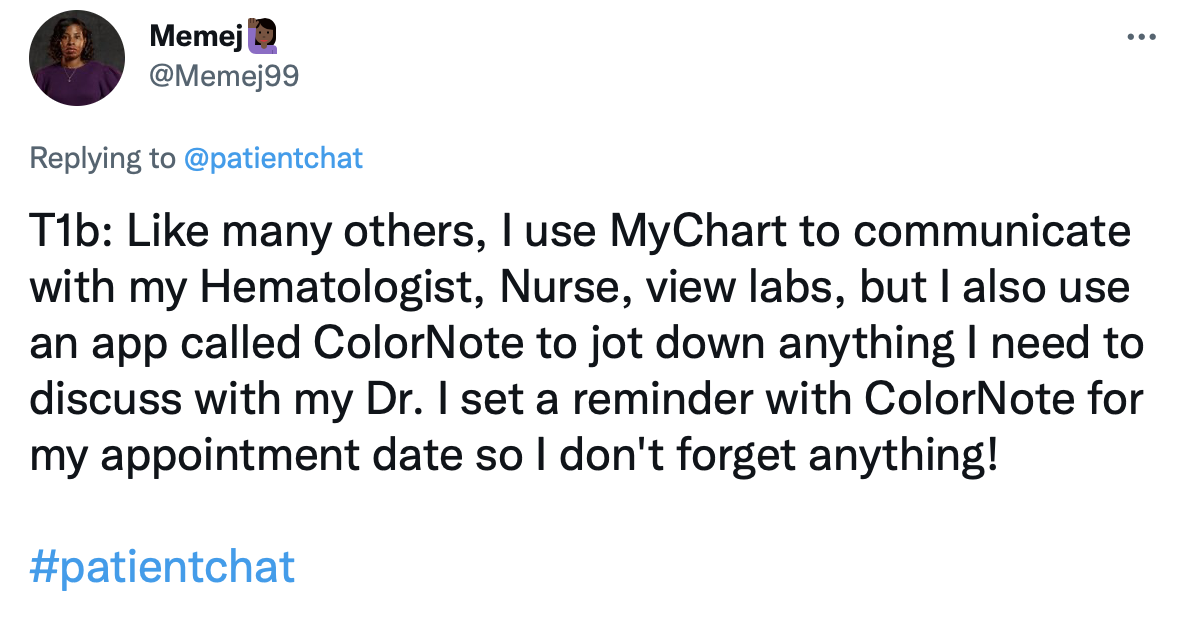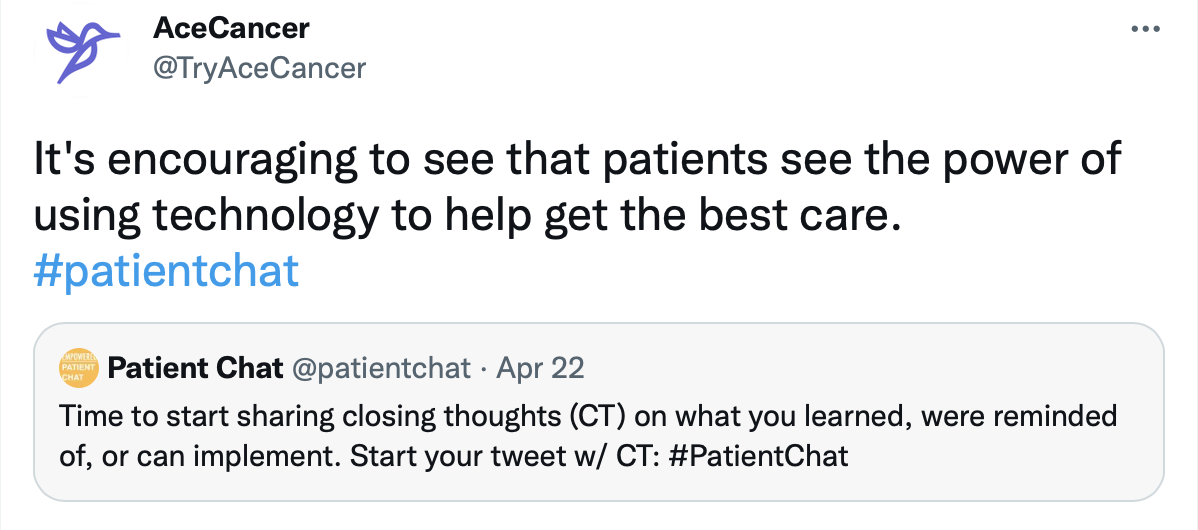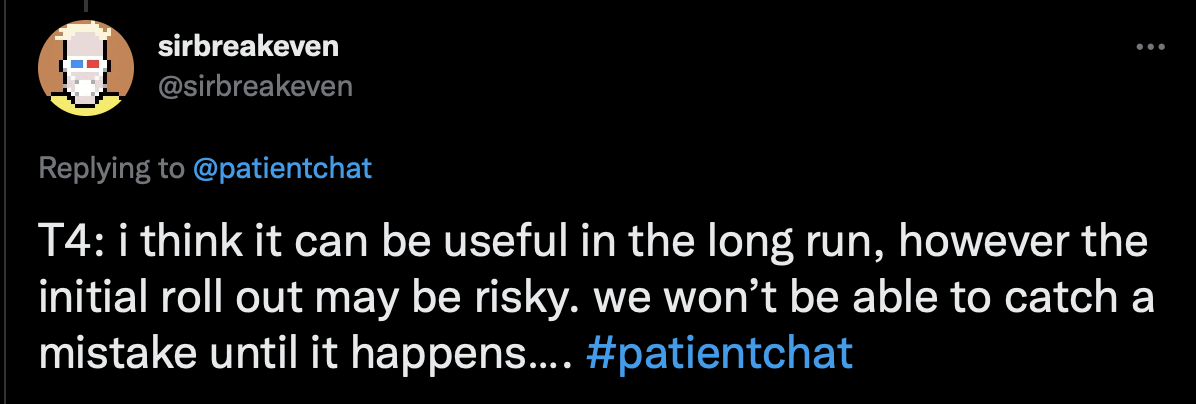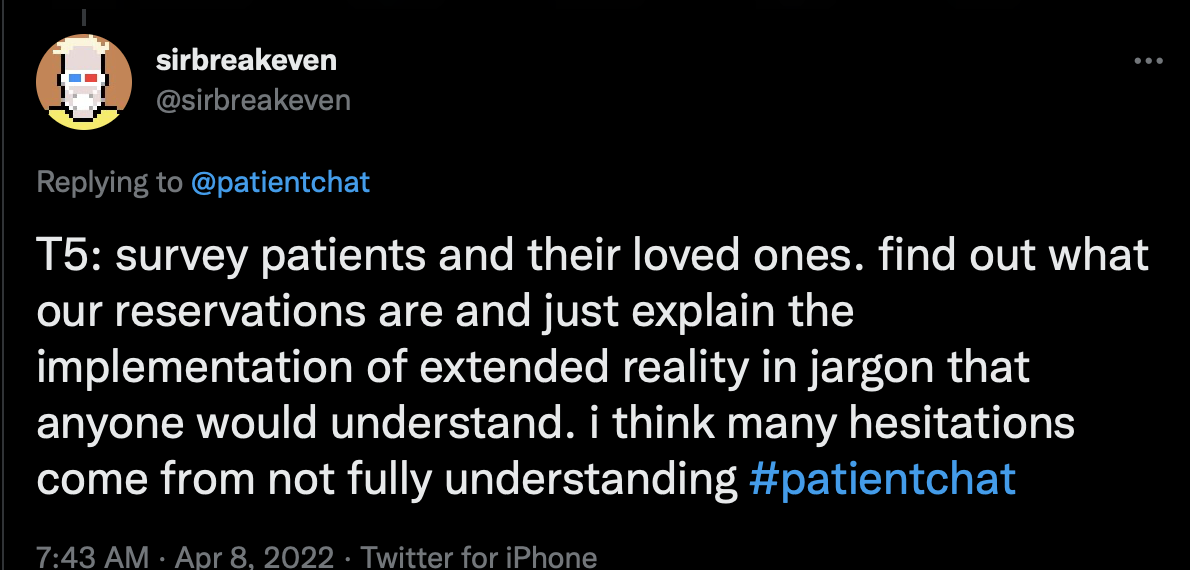#patientchat Highlights – Mental Health Check-In: The Emotional Impact of Chronic Illness
Last week we hosted a “Mental Health Check-In: The Emotional Impact of Chronic Illness” Empowered #patientchat on Twitter. Take a look at the top tweets and full transcript from the chat.
Top Tweets
How would you describe the state of your mental/emotional health for the month of September?
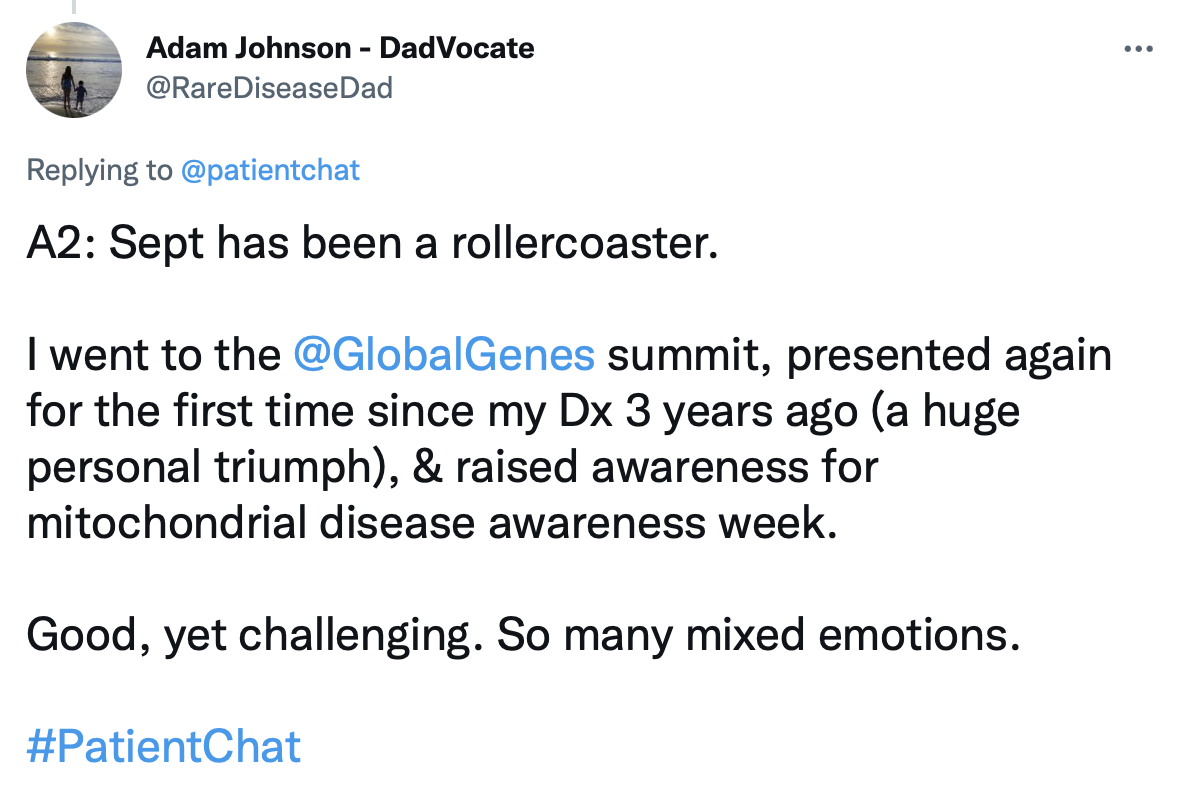
How are you currently prioritizing your mental and emotional health? Any self-care tips?
